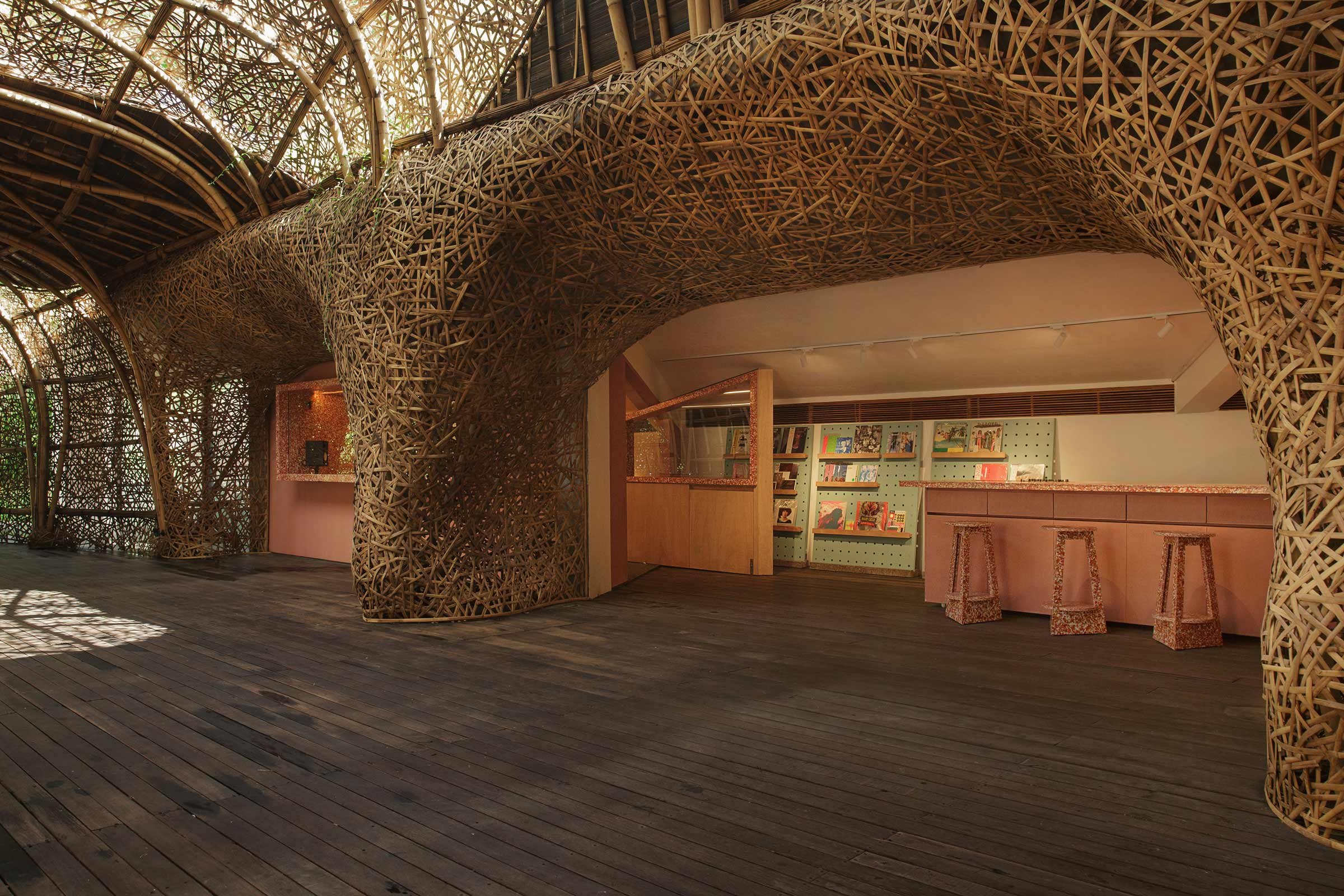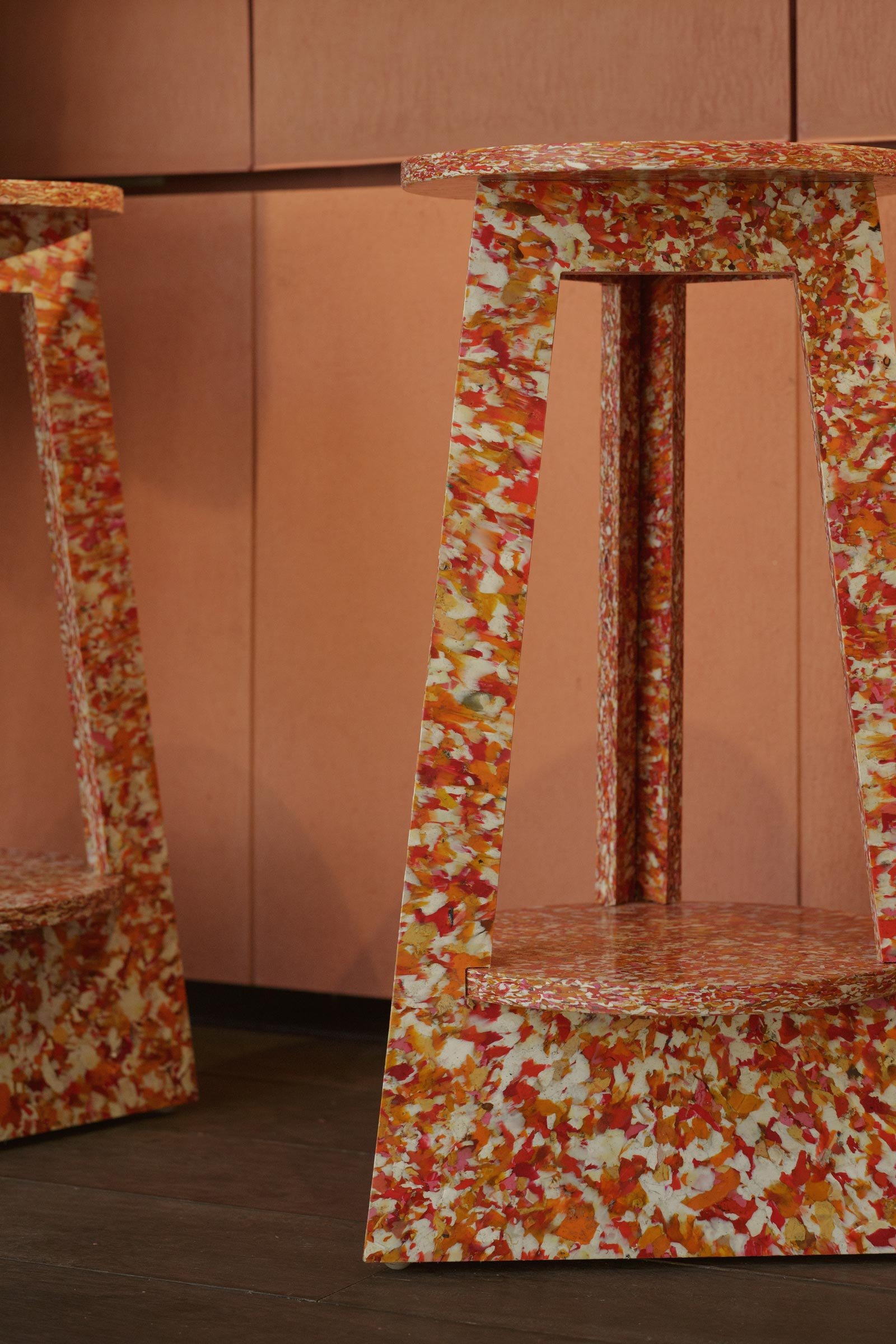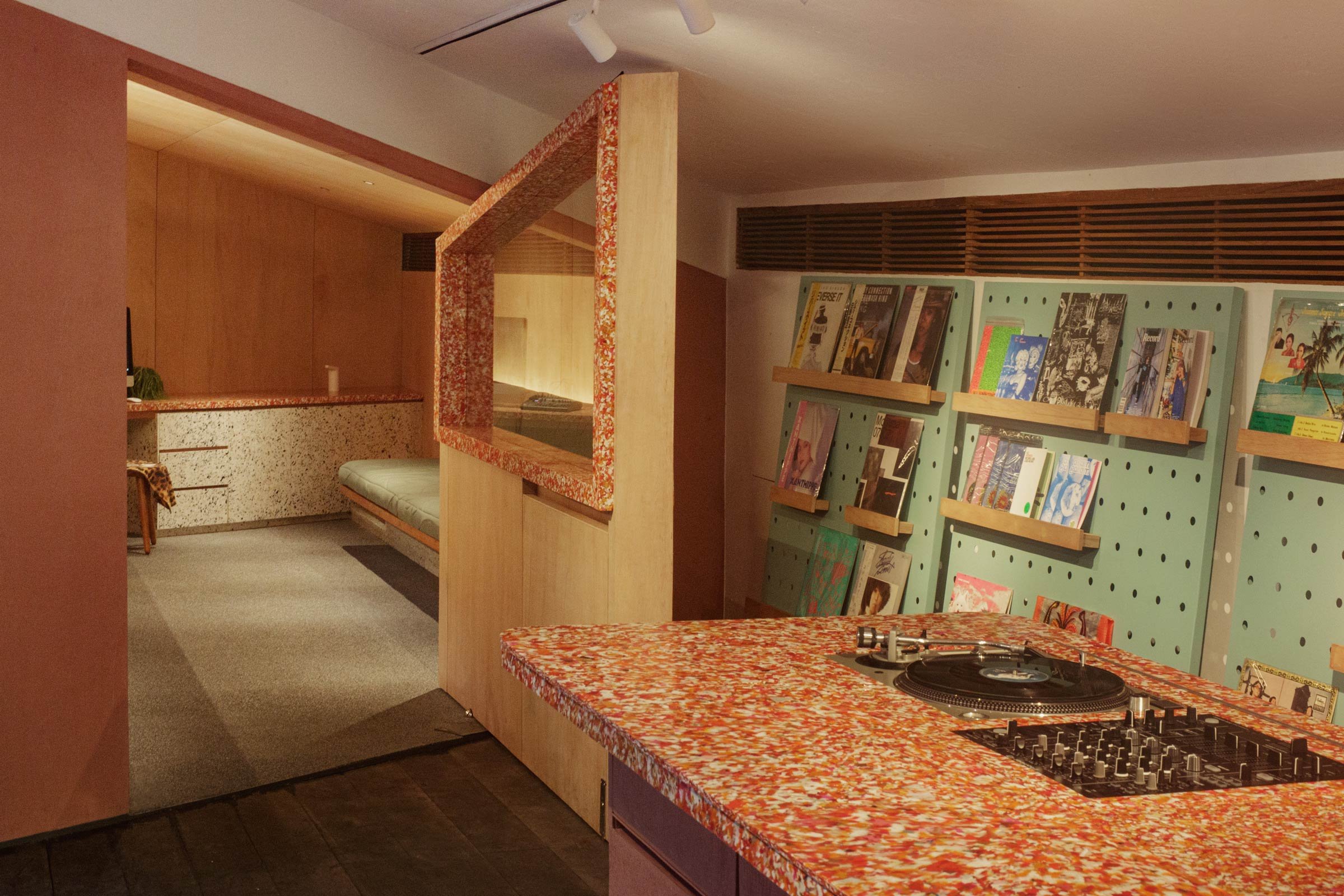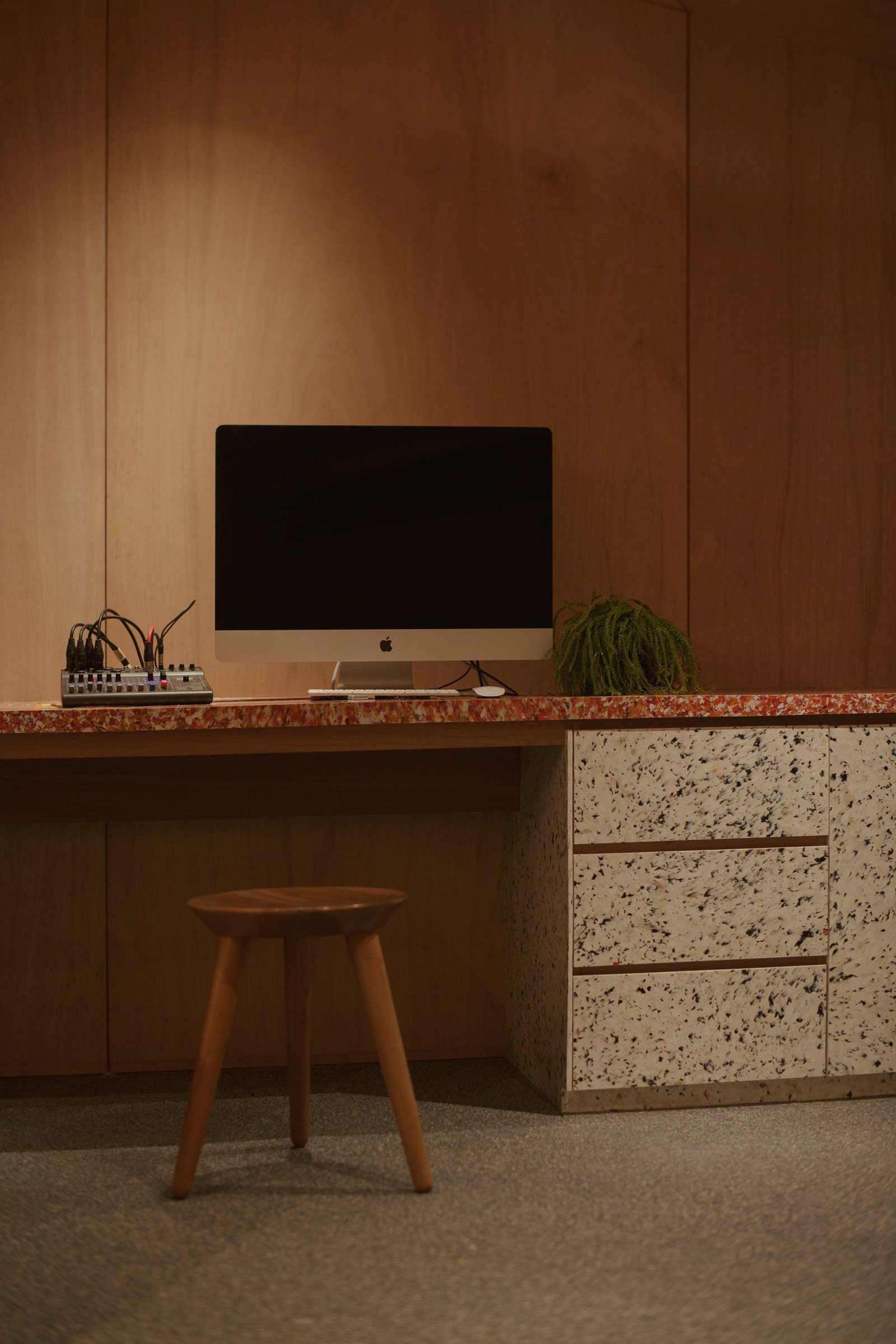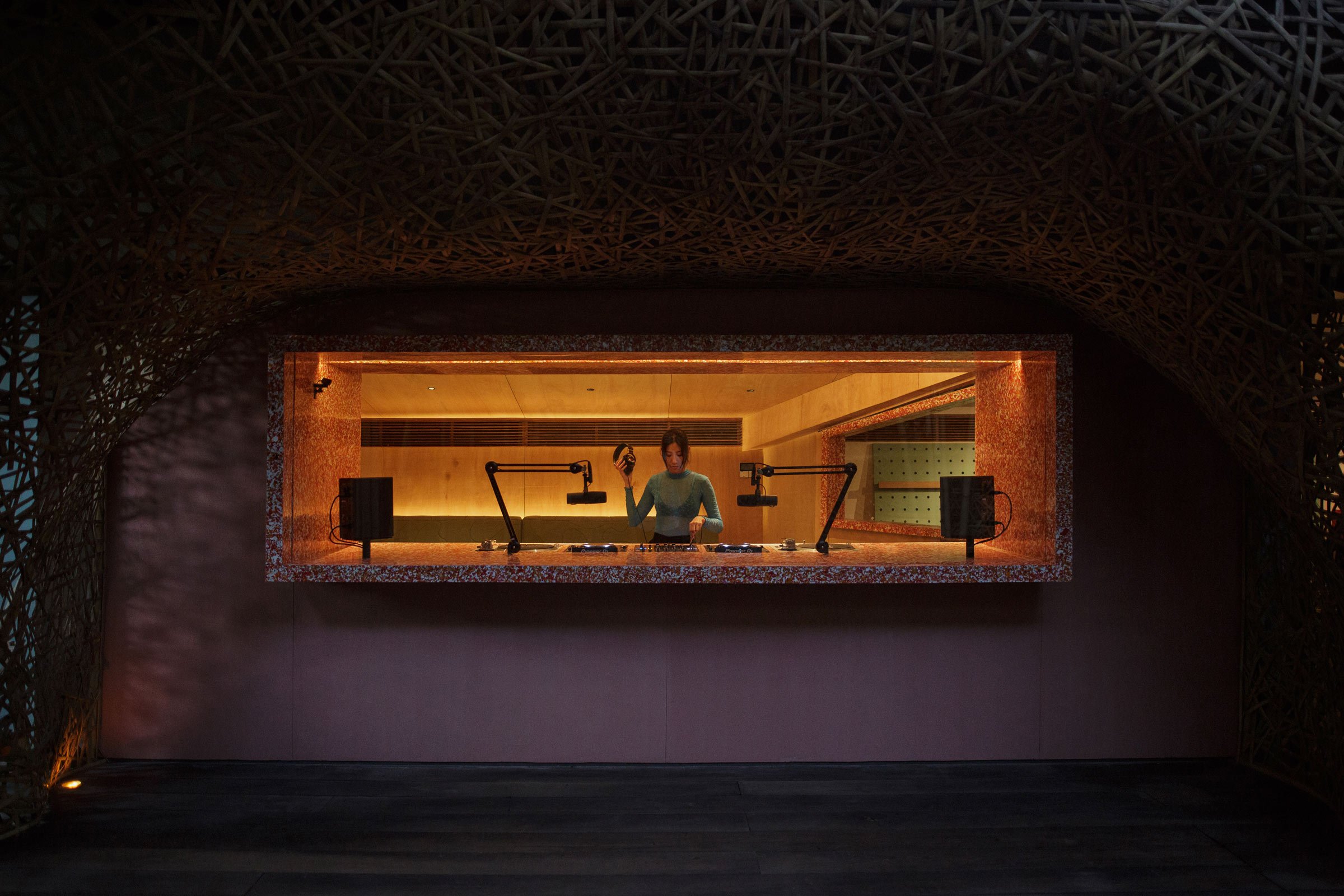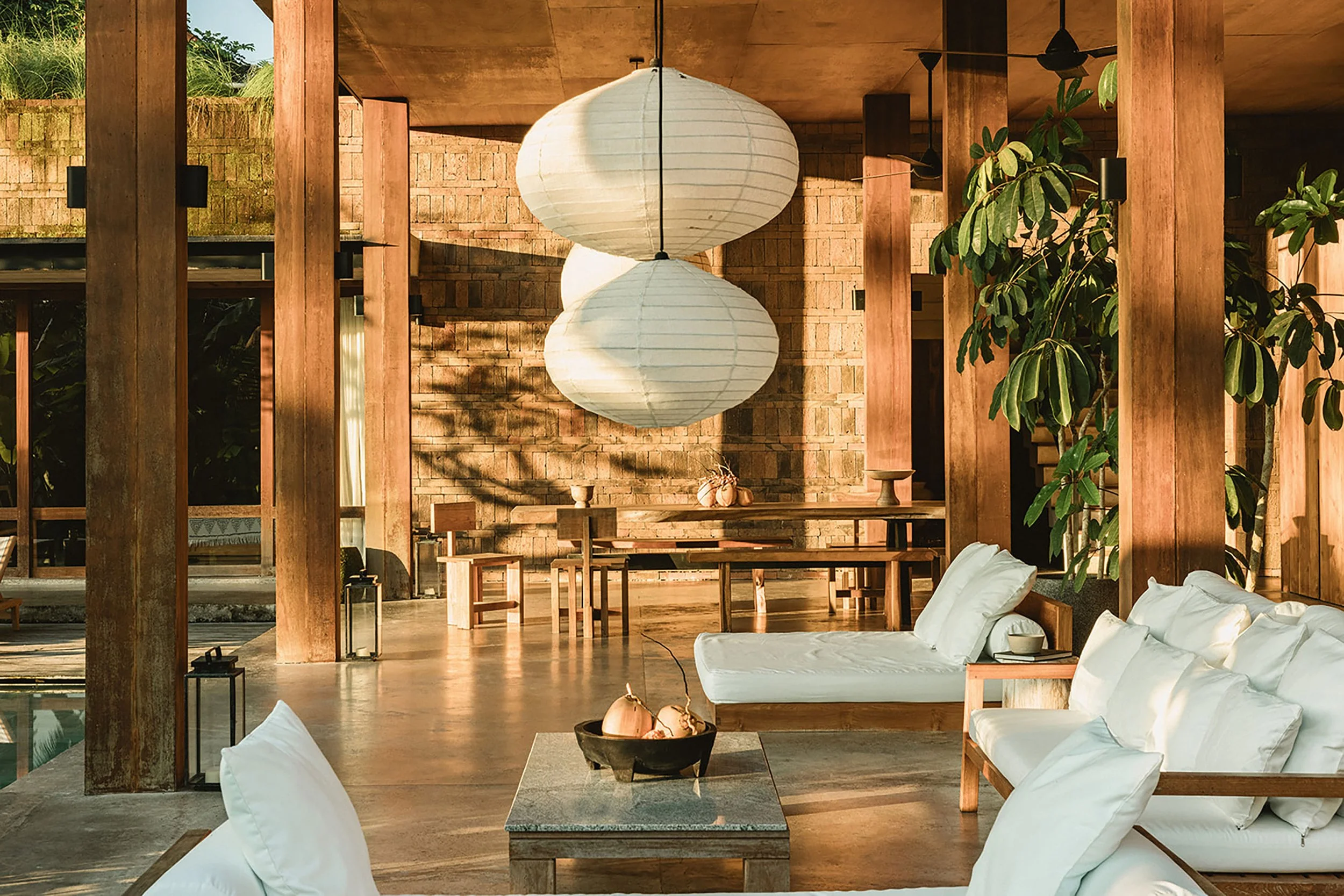Desa Potato Head Opens a Radio Studio and Record Store
The latest addition to Bali’s Desa Potato Head beach club, HEADSTREAM is a radio station, listening bar and record store designed by local architecture and design practice ZXC Studio
When Indonesian entrepreneur Ronald Akili co-founded the lifestyle and hospitality brand Potato Head in Jakarta back in 2009, he aspired to bring exposure to Indonesian culture. In 2010, the brand expanded to Bali with the now world-famous Desa Potato Head — a beachside hospitality complex featuring a hotel, two restaurants and a beach club. Dubbed Bali’s first ‘creative village’, the popular concept has received a cool new addition in the form of HEADSTREAM.
The radio studio, listening bar and record store was designed in collaboration with Bali-based architecture and interior design practice ZXC Studio, and echoing Akili’s original idea, the aim with this new space is to provide a platform for Indonesian musicians, DJs and other creative voices to share their work far and wide. Equipped with a DJ booth and audio and video live-streaming equipment, the studio is home to a daily online live radio station that allows listeners from around the world to tune in.
Situated at the entrance of Desa Potato Head within the curved body of The Womb — a 90-metre-long bamboo tunnel by Balinese artist Nano Uhero — the studio looks out into the tunnel through a large rectangular window framed in terrazzo-like red and white recycled plastic. The DJ booth faces the window, allowing artists to connect with visitors. ‘The studio had to be an enclosed and acoustically controlled environment, while also being visible from the outside,’ explains architect Zhi Xiong Chan, founder of ZXC Studio. At the back of the space, a built-in sofa features cushions embroidered in curvilinear patterns by collaborating artist Kanoko Takaya.
Next to the studio, a work space and listening bar welcomes visitors who want to browse through a selection of records and magazines available for sale. ‘The listening bar creates a seamless transition between the surrounding bamboo installation and the studio’, says Chan. ‘The overriding objective was to create a dialogue between the studio, the communal work space and The Womb.’ To this end, the listening bar and the studio are connected by a smart pivoting wall, which easily turns the two spaces into a single 60-square-metre space. In the communal work space, a nine-metre-long bar with an integrated vinyl player and matching stools features the same red and white material as the studio’s window frame — a material emphasis that creates a sense of continuity while highlighting the project’s environmentally conscious design approach.
‘The space had to be built with sustainability in mind, which is one of the key pillars of Desa Potato Head,’ says Chan. In total, 564 kilograms of recycled plastic were incorporated into the design. Motor oil bottles were repurposed into construction panels, industrial rubber waste was used to build the floor, and water bottle caps collected from waterways across Bali were turned into the red and white material featured across the space — bold choices that give HEADSTREAM its unique look while staying true to Potato Head’s commitment to sustainability.
Text / Nina Milhaud
Images / Sharon Angelia

